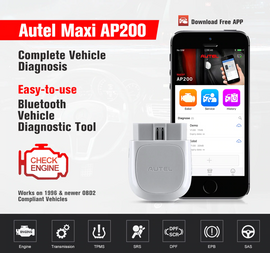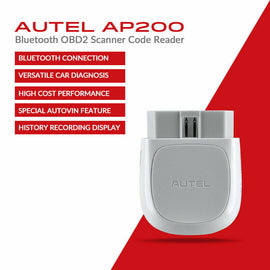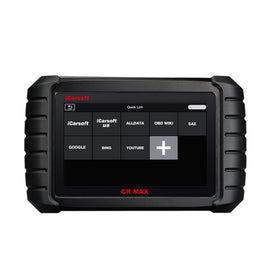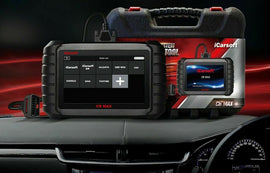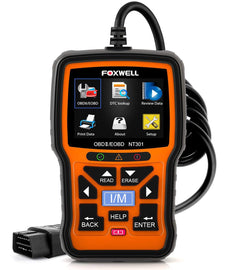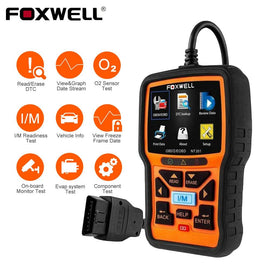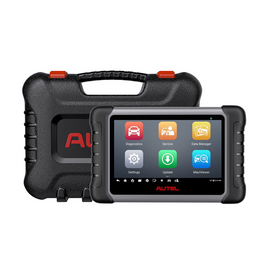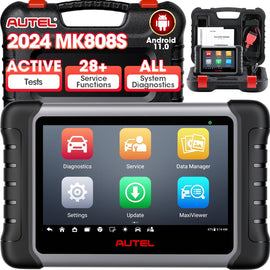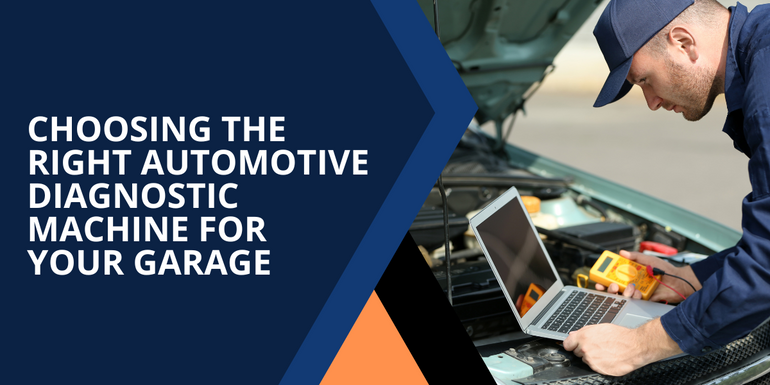Early diagnosis can lead to less risk of built-up problems, it isn’t just about our health, but the car's health too. If you are a mechanic, you need a lot of time to get to the real problem, and then you need more time to fix it. However, when you have the best diagnosis tool, you can get to the root of the problem quickly.
Modern cars are different, and their diagnostics require extensive processes and a diagnostic tool capable of managing such complexity. When working with modern cars, a versatile tool can improve the efficiency and effectiveness of your garage.
So, what to do when it is time to choose the right automotive diagnostic machine?
Let’s find out!
Understand the Types of Automotive Diagnostic Tools
First, let's familiarise ourselves with the many types of car diagnostic tools available. The most common is the OBD-II scanner, which connects directly to your vehicle's OBD-II connection and reads fault codes from the computer.
These tools range from basic models that simply display the code to complex versions that provide thorough diagnostics and even recommend potential solutions.
Handheld diagnostic instruments are another option, providing more detailed analysis and a broader range of tests.
These are frequently used by professionals, but they might be an excellent purchase if you are serious about car care.
Mobile app-based tools are the most recent choice, which combines a small hardware device with an app on your smartphone.
These are extremely user-friendly and ideal for those who like technology-based solutions.
Finally, a manufacturer-specific diagnostic scan tool for Australian cars provides more detailed diagnostics specialised to certain automobile brands, making them excellent for brand loyalists or individuals with unusual vehicles.
Things to Consider: How to Choose a Vehicle Diagnostic Machine?
We bet many car owners come to you regularly asking you to check the problems because something is troubling them while they are driving.
First plan of action for you as a mechanic is to check the car thoroughly, which might take a lot of time and might also make the problem worse. Besides, the risk of misdiagnosing the car issue is also real.
Now, when you want a diagnosis to be quick and accurate, why not get help from a vehicle diagnostic tool? Having one can be one of the best investments in modern times.
So, while you want to choose the right automotive diagnostic machine, make sure you don’t fall for marketing gimmicks; rather, get the one that helps your business become more efficient.
Here is what you need to consider:
-
Vehicle Coverage
Not every scan gadget is compatible with every car. It is critical to determine whether the scan tool you are considering is compatible with your own cars/trucks or the range of vehicles that your shop typically repairs. People who own or service a variety of automobile makes and models can get the most bang for their dollars by selecting an automotive scanner that covers the majority of their vehicles.
However, keep in mind that you cannot rely on a single item to handle everything for all of your automobiles and trucks. That is why many auto repair businesses stock different tools for different vehicles. Additionally, many diagnostic and maintenance procedures must be completed with manufacturer tools.
-
Repair Information
A diagnostic tool addresses only a portion of the problem. All of the tools you'll look at will display fault codes and live data, and most will run the diagnostic commands you choose.
The availability of repair information is also an important aspect of the puzzle. Only a few tools include integrated repair information, and even then, the vendors have distinct revenue structures.
Some provide "quick repair" information for the lifespan of the tool, but demand an additional fee to access full information after the first year.
Others propose a "all or nothing" approach of paying an annual fee for the additional information. Others provide no connected repair information but will sell you access to other third-party websites that you can use yourself.
-
Ease of Use
Many automotive diagnostic computers on the market are simple to use and can be picked up quickly. Toolmakers are also continually posting new instructional films and updating their user manuals to flatten the learning curve of their equipment and make mechanics' lives easier.
-
Compare the Features
Once you've determined your requirements, you may evaluate the features and characteristics of various automotive scan tools for mechanics that meet your criteria.
-
Check for compatibility to ensure the tool is compatible with the make, model, and year of the cars you work on, as well as the protocols and systems you require access to.
-
Functionality is also vital; consider what features and capabilities it provides, as well as how user-friendly it is. Some tools are basic and uncomplicated, while others are more advanced and multifunctional.
In addition, evaluate the user interface, screen size/resolution, battery life, memory capacity, update frequency/cost, and warranty/support choices.
Read user reviews and ratings from automotive professionals who have already used the product to assess its dependability and accuracy. If possible, try it yourself to see how it reacts to various problems and orders.
Conclusion
Choosing the best car diagnostic tool for garages is not just about brand or price—it’s about efficiency, compatibility, and long-term value. A well-chosen automobile diagnostic machine can significantly reduce diagnosis time, prevent errors, and improve customer satisfaction.
At Auto Lines Australia, we understand the unique needs of Australian mechanics and garages. That’s why we offer a curated range of diagnostic tools suited for modern vehicles, from basic OBD-II scanners to advanced handheld systems.
With the right device in hand, you can deliver faster, more accurate service—making your garage stand out in today’s competitive automotive repair industry.

